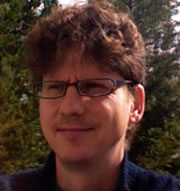
First Annual Mexican Philosophers' Conference

Rasmus Winther (homepage) Rasmus Grønfeldt Winther did graduate work in philosophy, philosophy of science, and biology at Stanford University and Indiana University. He was a professor at the Instituto de Investigaciones Filosóficas, UNAM in Mexico City and is now at the University of California, Santa Cruz. His work focuses on the philosophical concept of abstraction. It is precisely because of its ubiquity that a systematic study of abstraction provides a valuable entry point into understanding key philosophical problems, including realism, inference, reductionism, mereology, as well as the structure, function, and reification of theories. Thus, the study of abstraction relates philosophical issues in science to Metaphysics, Epistemology, Philosophy of Language, and Philosophy of Mind. |
 |
|
Abstract: Recent work in the philosophy of mathematics and philosophy of logic (e.g., Thomas Hofweber, Agustín Rayo, and Stephen Yablo) discusses a number of the problems associated with the potentially unnoticed reification of the ontological commitments of our formal languages. Following Quine and others, they explore the consequences of naively attempting to read our ontology directly off of our formal theories and languages. Analogous problems have been diagnosed in the philosophy of science. Strong critiques have been issued. In the 1970s, Richard Lewontin and Richard Levins warned population geneticists and theoretical ecologists to not confuse their mathematical models with reality itself. Others have voiced similar worries: Nancy Cartwright (1983) for theoretical physics and Brian Cantwell Smith (1996) for computer science. These warnings are particularly pertinent to mathematical modeling in fields in which strong and clear data are difficult to wrestle from the systems studied (e.g., from complex biological systems). |
email: mexphil@gmail.com